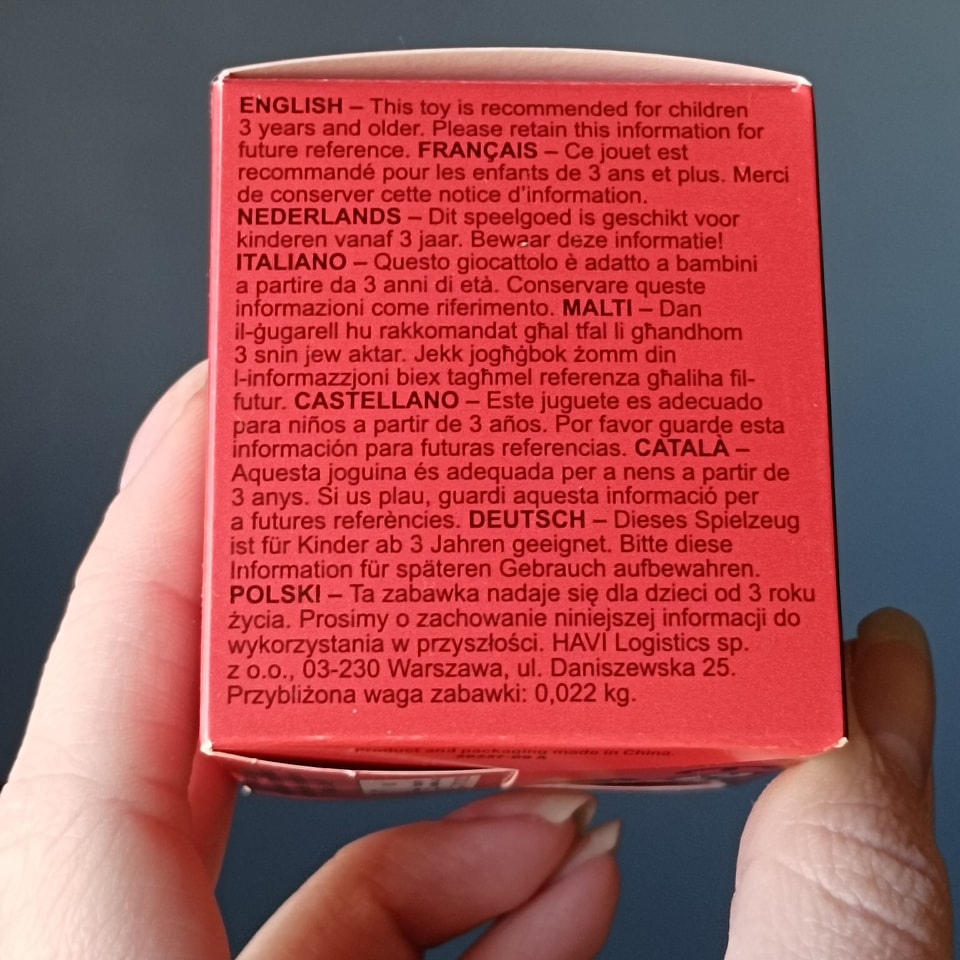The Maltese language was not always the language of the Maltese. Many years ago, it was more inclined to be confined within the walls of the kitchen, as it was nicknamed ‘il-lingwa tal-kċina’.
As the years progressed, the nation’s mother tongue became more recognised for its importance, central to the country’s identity for its uniqueness in the world. Nonethless, it has always sparked debate on its proper usage, both spoken and especially written, and how prominence has decreased over the years.
Malta's foreign population has grown by more than 95,000 in the past 10 years according to census data, and many businesses will argue that with rising costs and lower margins, the costs involved with introducing the Maltese language into their packaging, marketing or website, is not justified.
On the other side of the coin, others argue that welcoming the country's national language can act as a marketing tool in itself, attracting patriotic locals.
Some took to social media to criticise the lack of the Maltese language used by local businesses for their marketing, products and on a general level. One of the critics is the Facebook page ‘Il-Malti Madwarna’, a vociferous awareness platform that highlights the use of the Maltese language on labels and signs among others.
On International Mother Language Day, the brains behind the facebook page highlights that on the islands there are many food products and beverages manufactured locally, including certain internationally renowned soft drinks that are bottled in Malta.
“We find ourselves in a bad situation where one can buy a local, manufactured and packaged product in Malta but cannot read what's written on the packaging in Maltese. No independent country would imagine having a situation like this,” the page told WhosWho.mt.
First and foremost, the page remarks that businesses “need to realise” that if they are based in Malta, then the majority of the client base is Maltese. Therefore, they add, "it is very obvious" that the communication with clients should be in Maltese or in Maltese in addition to English.
When discussing marketing such as social media managament and the use of the mother tongue, they remarked that theren’t any particular challenges that might hinder the effort of implementing the Maltese language.

Object featuring the Maltese language featured on the page 'Il-Malti Madwarna' / Facebook
“It’s important that the people in charge have good knowledge of Maltese. This means that, aside from being correct orthographically, the person thinks and writes in Maltese and does not just translate to Maltese. This is particularly important because if done, Maltese sounds forced and weird,” they recommend.
They believe that creativity is key and businesses that want to incorporate the Maltese language in their products should not hold back.
This can be done by engaging a translator, that “is not only good at using the language but can be someone that is able to find the right terminology, that is creative in nature and that can also be used as a consultant on anything that is related to the use of the Maltese language for business purposes.”
They add that many people have the misconseption that this might be too costly but in reality, “it isn’t.” In addition, they mention that the National Council for the Maltese Language is a great resource that can point businesses in the right direction.
When asked which industries they would prefer to prioritise the use of Maltese in, without a shred of doubt, they reply that the food and beverages sector is a must.
“The industry can easily put in effort to start using Maltese. Let’s not forget that on large amounts of imported items there isn’t any Maltese and English on the packaging. Frequently, we find the use of Italian and, unfortunately, the law permits this even if Italian is not an official language and there are thousands that do not understand it,” they elaborate.
In addition, they highlight that the lack of Maltese language can have dire situations where persons with severe allergies can risk death after eating a specifically ingredient that they weren’t aware of.
‘The Government isn’t aware that most businesses won’t use Maltese if the law doesn’t oblige them’
The page argues that to this day, low regard towards Maltese and a colonial mentality has led many to still believe that the language is not good enough to communicate in a formal context.
At the end of the day, they express their belief that the Maltese language “is rarely used because the law does not obbligate anyone to use it.”
They say that the Government is unaware that the “absolute majority of businesses won’t use Maltese because the law does not oblige them. The Government needs to be more proactive, now more than ever,” they highlight.
They also point towards a Maltese company that opted to adopt the language in their packaging out of their own volition. The Strand Palace Agencies has for the past four years been using Maltese in some of their products, including Twistees.
Among the benefits of the use of Malta’s mother tongue, the page highlights that some locals only know Maltese. “Don’t they have a right to use the only language that they know, the national language?”
Overall, in the local scenes there were companies that have incorporated the Maltese language to promote and explain their products. In their final comments, the page remarks that with those who have put in the effort, they are “very ahppy with them. We could only hope that others follow suit and start making use of the mother language.”
Saħħa!
Main Image:
